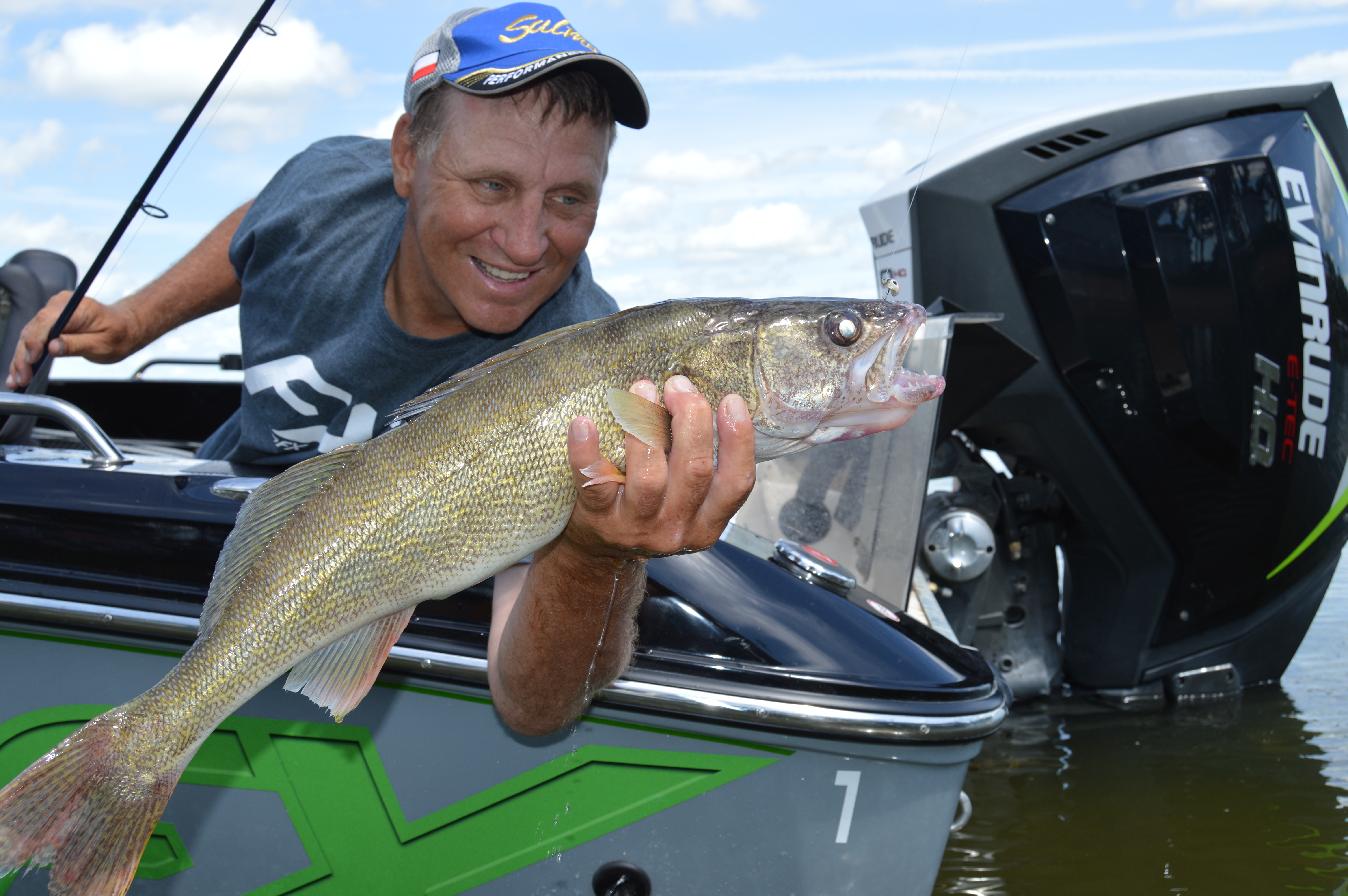by Bob Jensen

There are lots of signs that fall is not far away. You can listen to the locusts at night, notice that the days are getting shorter and the nights are getting cooler, or you can just look at the calendar. No doubt, another fall is starting to make its entrance. That excites many anglers because, in the mind of many very successful anglers, fall is the best time of the year for fishing. And to many of those same anglers, jigs are the way to catch fall fish. Jigs might not be our first choice if bigger fish are what we’re after, but when it comes to catching numbers, jigs are the ticket. And don’t misunderstand, big fish will eat jigs. But there are a lot of different styles of jigs, from the generic roundhead jig to a good number of specialty jigs. Here are some ideas for selecting and using jigs to catch fall fish.
First, we need to determine what species of fish we’re going to be chasing. In the Midwest, walleyes are what most anglers would like to catch. We’ll be tipping our jigs with either minnows or plastic much of the time. When using minnows, redtails are great when you can get them, although I’ve done very well in some situations with four-inch sucker minnows. Shiners are the best choice in some lakes, and if you just want to catch a bunch of fish, fatheads are probably the way to go but get the biggest ones you can find.
I really like Fire-Ball Jigs when using minnows. Fire-ball Jigs have a short shank/wide gap hook. Put the hook in the minnow’s mouth and out the back of its head. By doing so, we get outstanding hook-up percentages, and the minnow stays on the jig longer. The minnow’s lips are right up against the jig head.
Another jig that’s really been getting the attention of avid jiggers is the new Swivel-Head Jig from Northland Fishing Tackle. The hook isn’t molded into this unique jig, it’s attached with a swivel. The hook is completely free to move, so the minnow can move more also. It has a stand-up head, so it can be fished slowly. The Swivel-Head Jig is catching fish when others don’t.
If you choose to use plastic, and more and more walleye anglers are, try a Rock-It Jig. It has a longer, sharper hook and a holder that keeps the plastic from sliding down the hook. It also has a stand-up head so it can be hopped or ripped along the bottom very effectively.
Now for largemouth bass. If you just want to get bit, go with a jig/plastic combo: Use a five or six-inch plastic worm and fish the weedline.
But if you want to focus on the biggest bass, go with a rubber-legged jig with bulky plastic. The Jungle Jig is an outstanding jig of this style. Work it along the deep weeds, but also swim it in the deeper reeds. If you can locate clumps of coontail in deep water, try making short pitches to the clumps. I’ve had some memorable days fishing deep clumps of coontail.
From now until ice-up, if you put your jig in front of a fish, the chances of that fish-eating it are very good. This fall, if you have to choose between raking leaves or going fishing, go fishing. You’ll be glad did.
PHOTO CAPTION—Mike Frisch catches lots of walleyes like this one on jigs in the fall.
To see all the most recent episodes of the Fishing the Midwest television series, new fishing-related tips, and fishing articles from the past, got to fishingthemidwest.com If you do Facebook, check us out for a variety of fishing related things.

